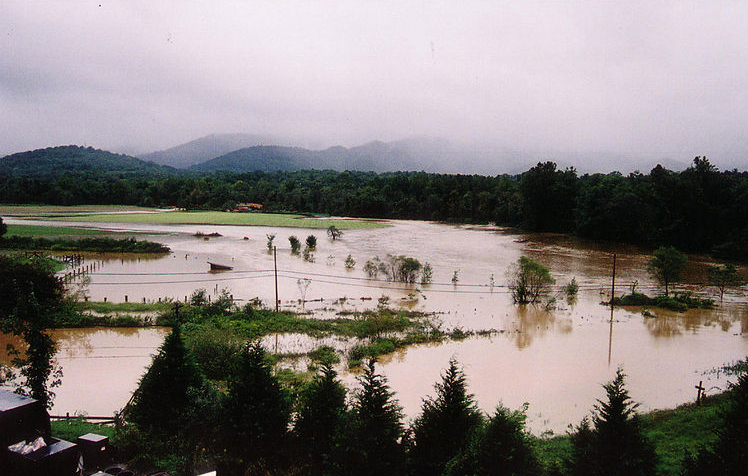
Farmers have called for a 'more effective partnership' between government and the Environment Agency to help protect high value land from flooding.
After the record-breaking wet summer and autumn, landowners have asked for an increase in budgets in order to prevent flooding in the future. The Chartered Institution of Water and Environmental Management also backed calls for increased investment.
New figures published today by the Environment Agency show that one in every five days saw flooding in 2012, but one in four days were in drought, including hosepipe bans affecting over 20 million people. Rivers such as the Tyne, Ouse and Tone went from their lowest to their highest flows since records began, all in the space of four months.
However, despite an additional £120m for flood defences announced last autumn, many believe that long standing budget cuts have seen river maintenance reach 'an all time low'.
"While belt tightening is part and parcel of life at present, there are some areas that must be protected – investment in sustainable flood infrastructure is one such area" said CIWEM Executive Director, Nick Reeves.
"Failure to invest in infrastructure and manage the risks of flooding in a sustainable, realistic way will lead to continued loss of life and property, extensive damage to the UK economy and ongoing misery for millions of people."
The Country Land and Business Association said the investment continues to 'discriminate against rural areas'.
"The new funding process has failed to deliver a complete overhaul of prioritisation techniques, cost benefit valuations and discounting assumptions for land" said CLA President Harry Cotterell.
"Placing limited value on agricultural land and buildings compared to more urban residential properties limits the scope for rural flood defence projects to achieve favourable cost benefit outcomes."
"The Government must redress the balance by reviewing the process alongside rewriting the Treasury Green Book guidance in relation to flooding."
NFU members reacted strongly at a recent county meeting following reports of farmers being prevented from undertaking voluntary maintenance of water courses - to help protect habitats or biodiversity.
NFU County Chairman Ivor Beech, who has himself been the victim of flooding on his farm, explained it was critical that the Environment Agency and Defra put far more funding into maintenance budgets and that government policy re-balanced the weighting for flood defence spending to give greater consideration to high value farmland.
"We need a re-balancing in the capital and revenue flood defence spend – so that any increases in budget for capital spend is matched by an increase in revenue to contribute to maintenance budgets" Beech said at an industry meeting in London.
"We continually hear how farmers are still battling the impacts of wet land, whether that's not being able to harvest crops or vegetables or autumn plantings being drowned, there are huge concerns out there.
The Association of British Insurers' raised concerns about the significant risk, which could lead to those within areas identified at greatest risk likely to find the level of future premiums to insure against flood risk unaffordable, if insurance is available at all.
With increased frequency and severity of flooding, the viability and future of communities where property cannot get insurance would be in question, causing whole communities to be potentially lost.
"Farmers are saying quite clearly that they are prepared to look after rivers and undertake additional drainage on their farm but they are prevented from doing so by additional regulations aimed at protecting habitats" Beech said.
"Surely we can do both? We need an honest dialogue and long-term commitment to think and act differently. We must reduce the administrative burden and streamline the process for those farmers who would like to maintain their own watercourses.
"New thinking could include guidelines that make it easier, not more difficult, for farmers to undertake their own maintenance; new partnership approaches between the agency and farmers in some areas.
"We also need to ensure that productive agricultural land is properly valued in terms of long-term value to society so that the benefits of protection are fairly reflected in any flood management assessment."
